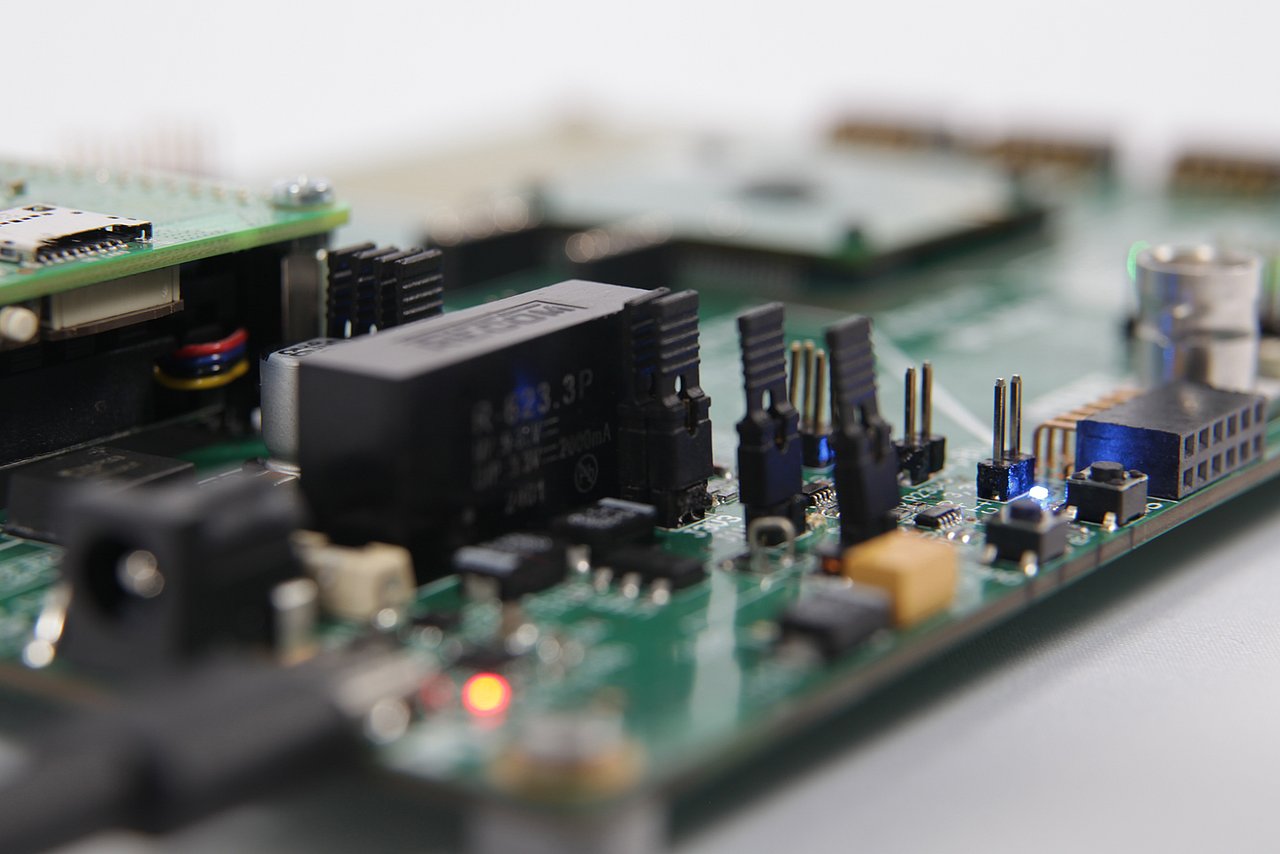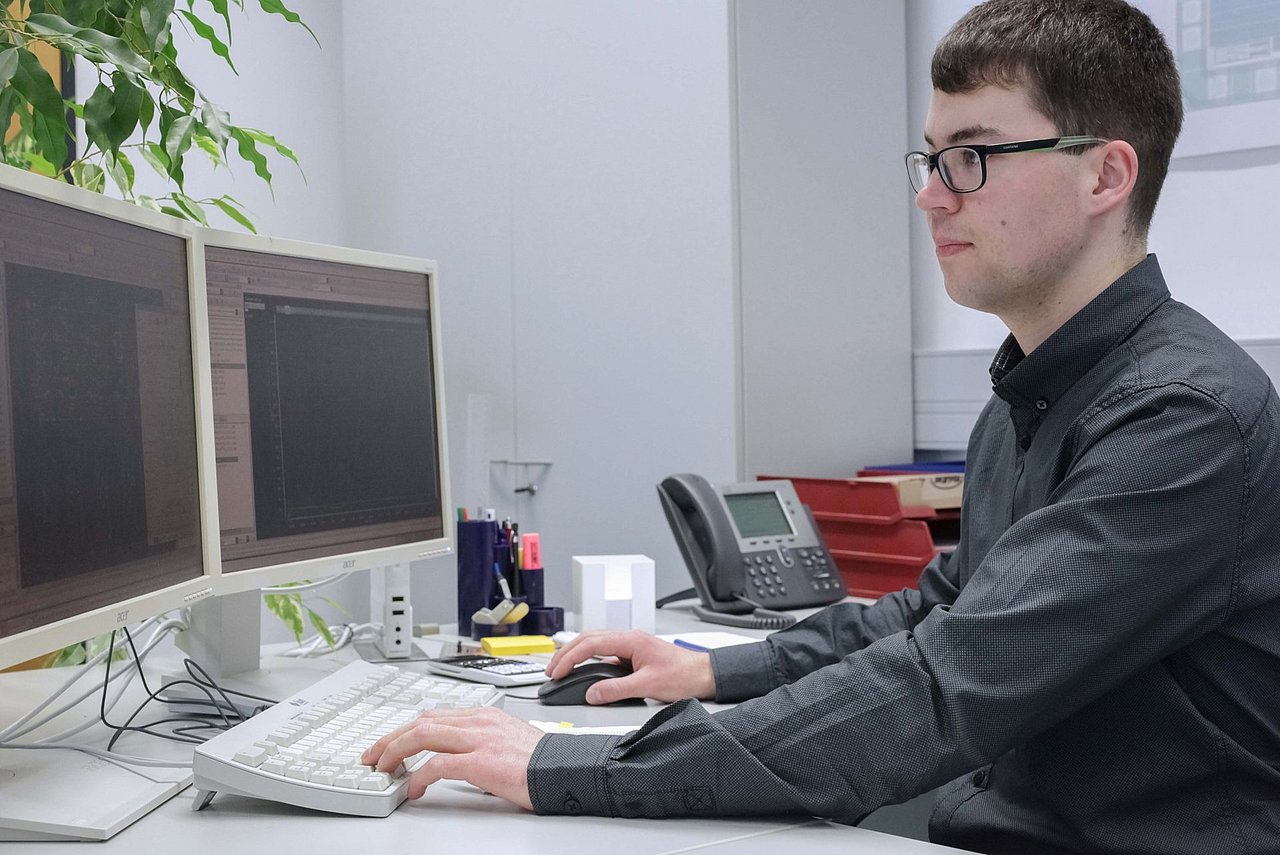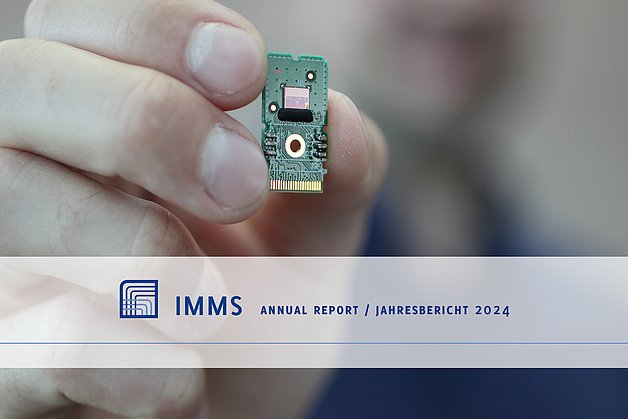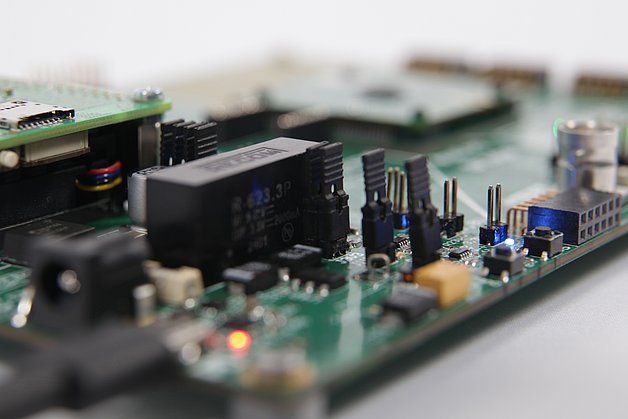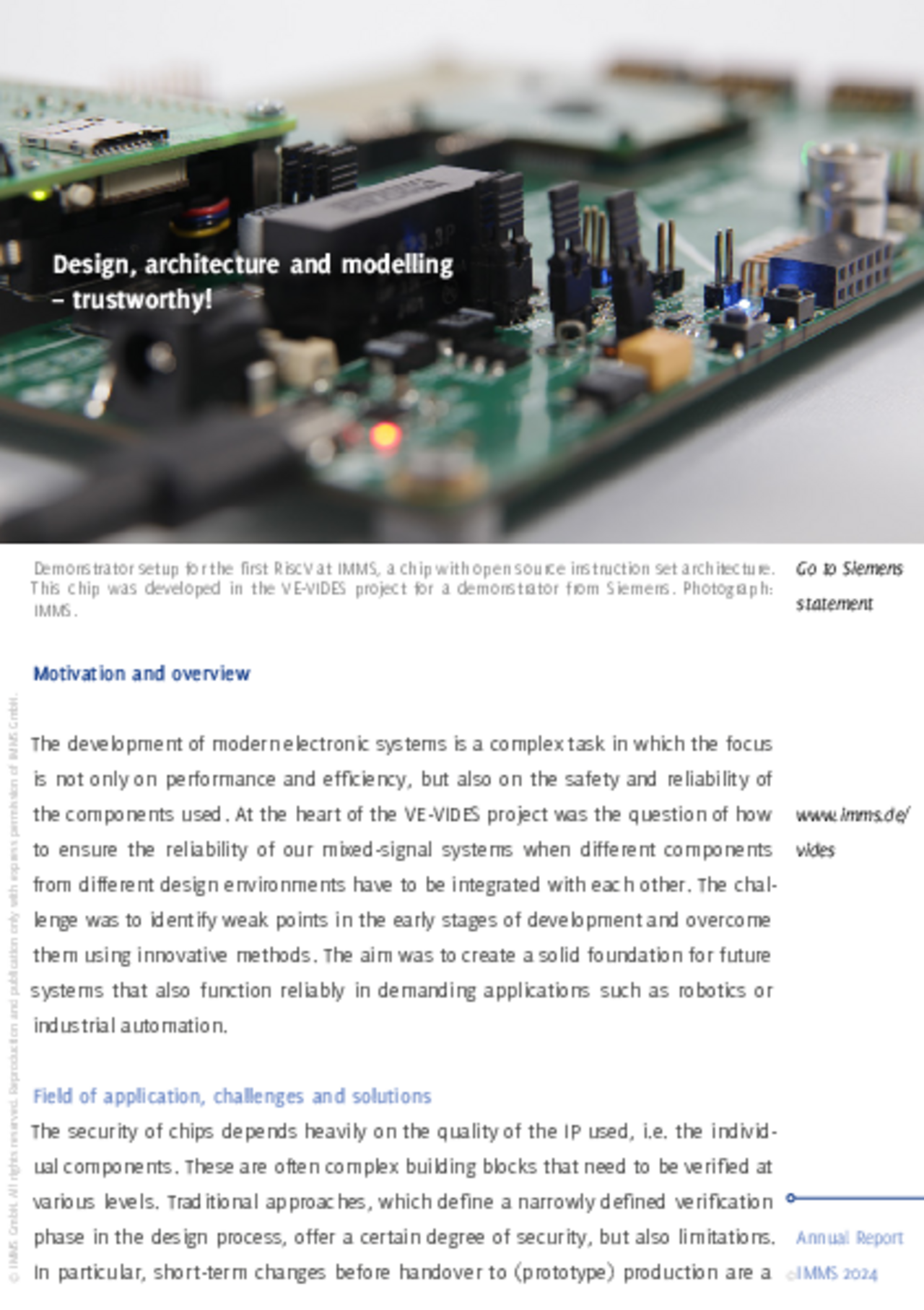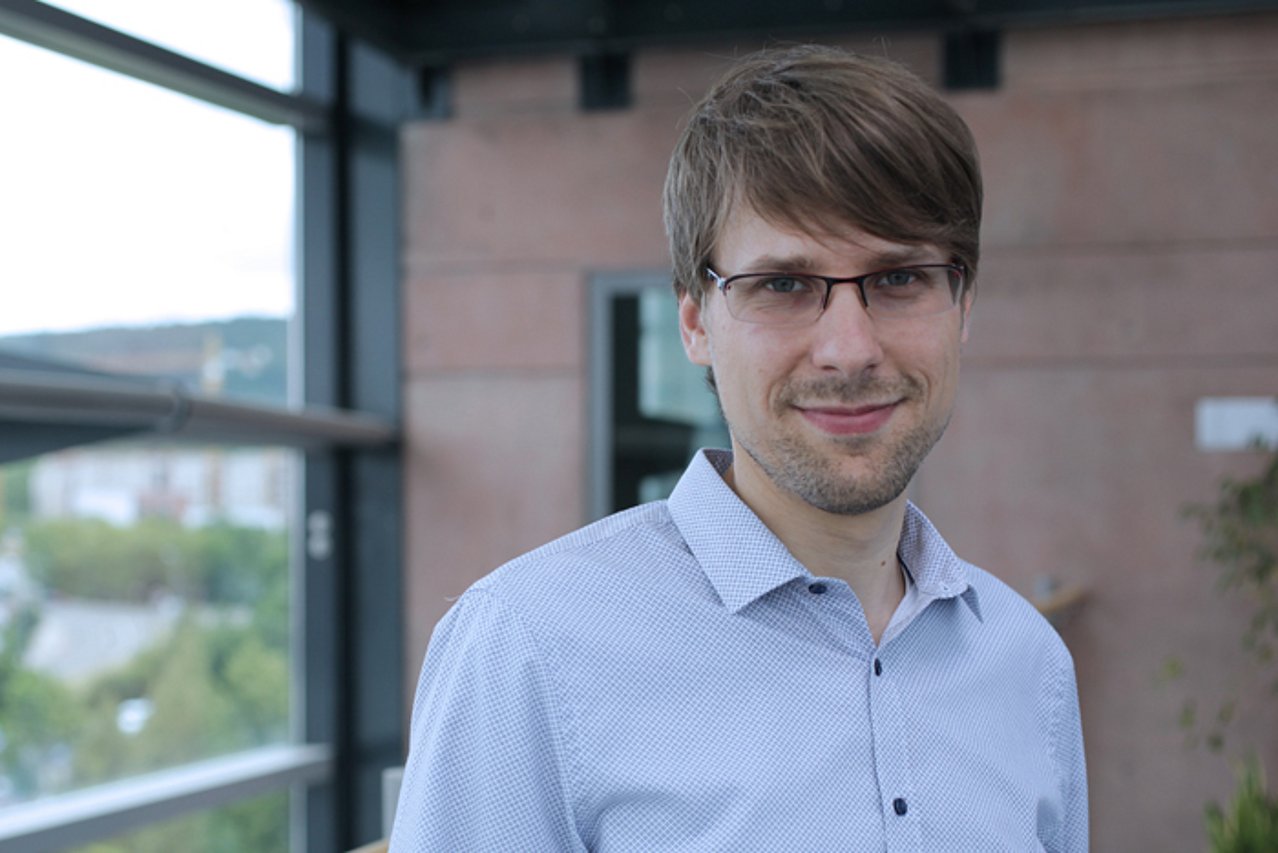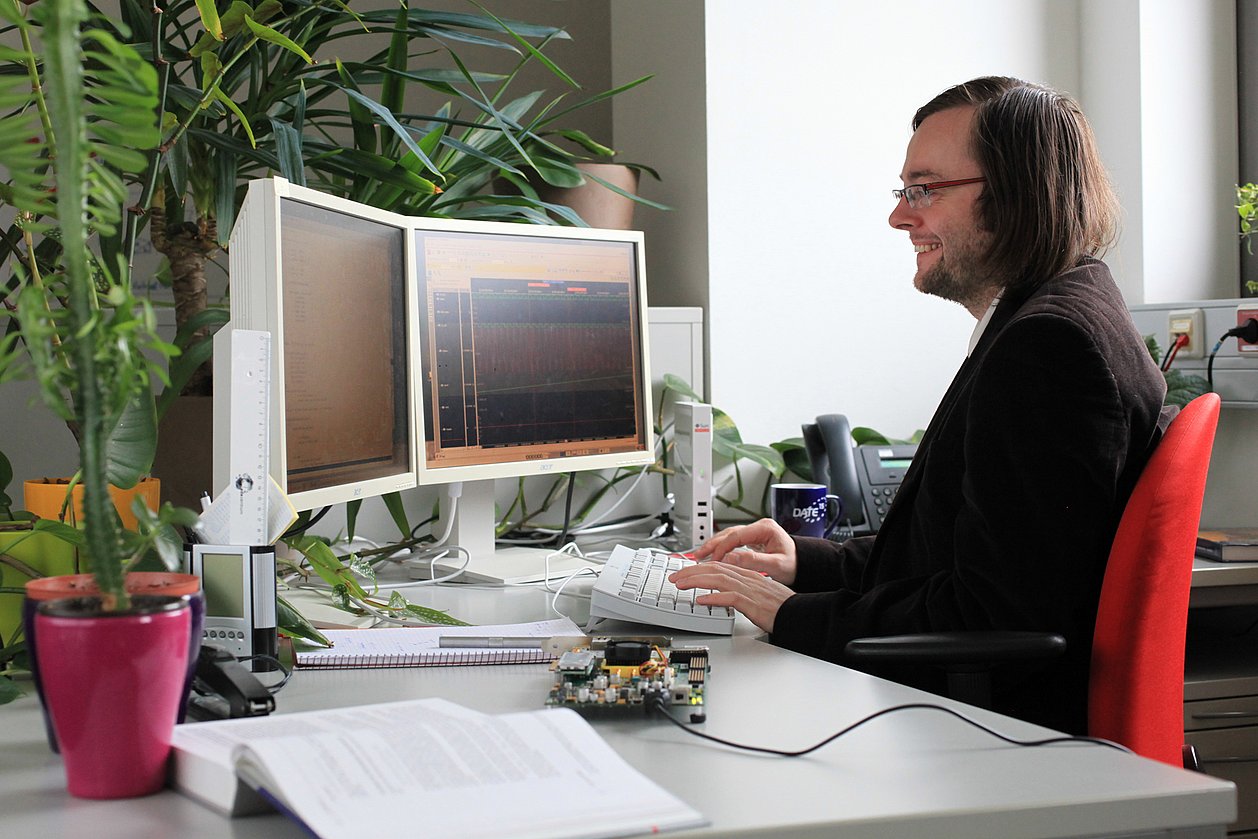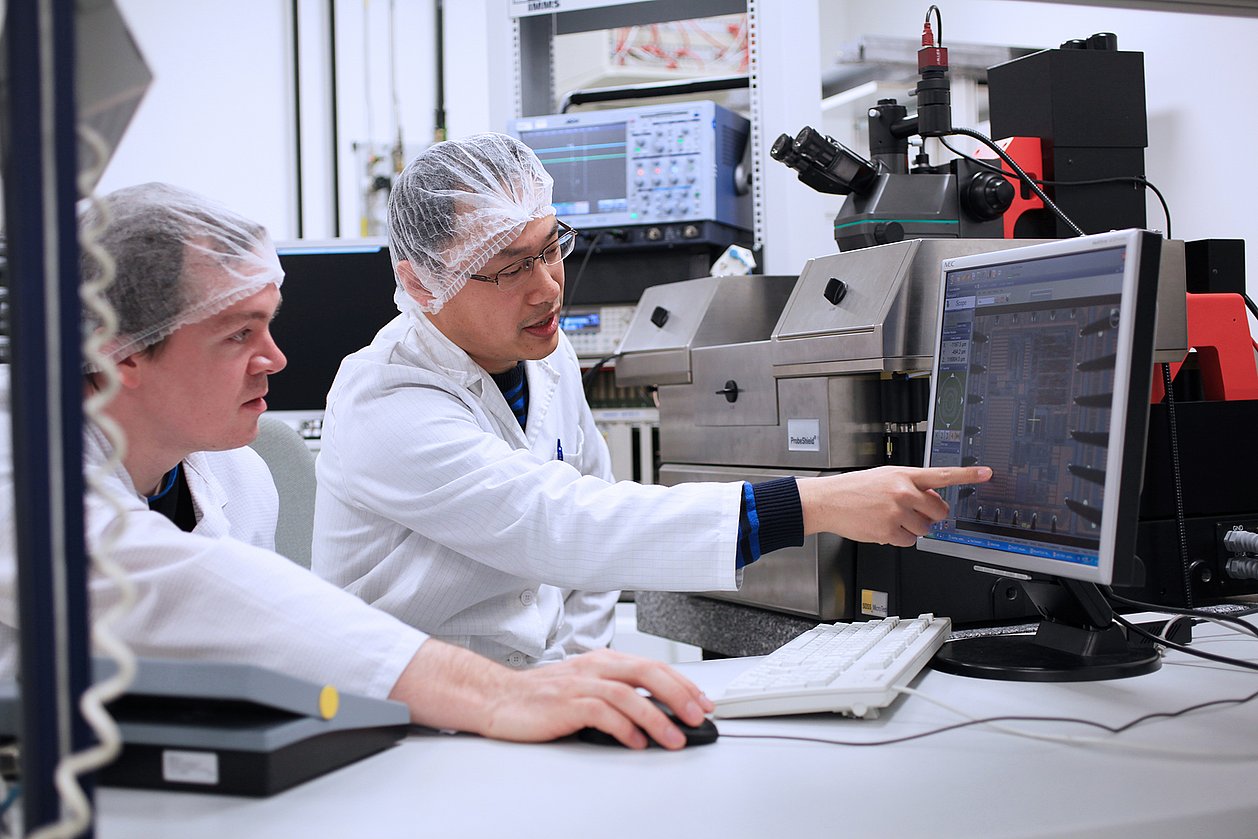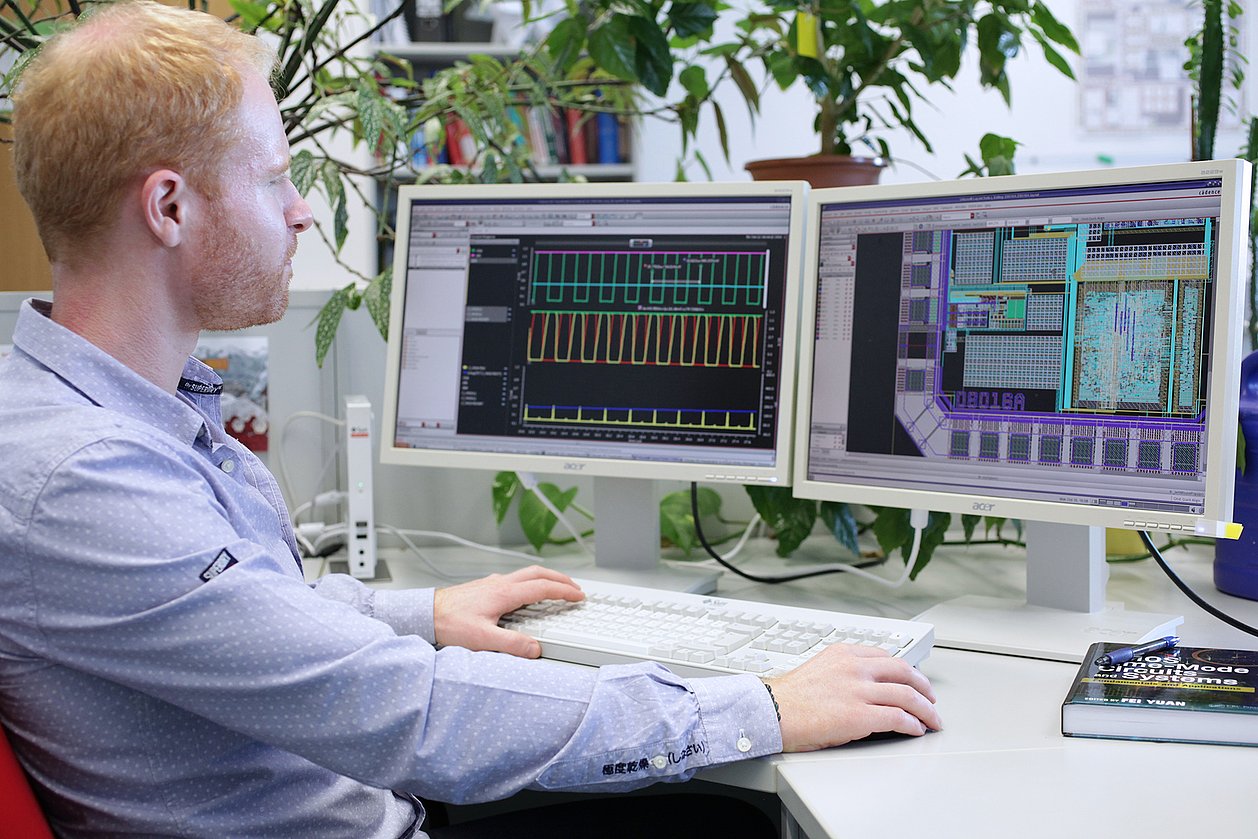Project VE-VIDES
Against hacker attacks: Innovative chip architectures, modelling and verification methods for trustworthy electronics
Hackers are already targeting networked vehicles, machines, industrial and telecommunications systems to gain illegal advantages, such as harming competitors, stealing intellectual property or leaking sensitive data.
At the same time, there is a growing need to make automotive systems, corporate and production networks more functional, convenient, traffic-safe and energy- and cost-efficient. These requirements alone are not only making the systems more and more complex and demanding in their development. They are also becoming increasingly networked. More complexity and more networking also offer more opportunities for attacks on these systems, which can also have a greater impact and are therefore also more lucrative for offenders.
In the project, IMMS and its partners are securing the design of integrated systems through innovative chip architectures and automated modelling and verification methods. This should enable the trustworthiness of the system to be continuously checked not only during the design, but also during operation, and thus a hacker attack to be blocked.
Acronym / Name:
VE-VIDES / Design methods and HW/SW co-verification for the unique identifiability of electronic componentsDuration:2021 – 2024
Application:
|IC design| chip design| design methodology| AI| models| modelling| design supportResearch field:Integrated sensor systems
Related content
Reference
Mirjam Mantel, Siemens AG
”The close cooperation with IMMS was characterised by a practical and application-oriented approach. The partnership has exceeded our expectations and we consider the results to be very successful.“
Trust is Good, Monitoring is Better: FPGA- & TEE-Based Monitoring for Malware-Detection
Friederike Bruns1. Georg Gläser2. Florian Kögler2. Jonas Lienke2. Nithin R. Nanjundaswamy3. Gregor Nitsche3. Behnam R. Perjikolaei4. Jörg Walter4.13th IMA International Conference on Modelling in Industrial Maintenance and Reliability MIMAR2025, July 8-10, 2025, Université de Lorraine, France, DOI: doi.org/10.19124/ima.2025.01.25
1Carl von Ossietzky Universität Oldenburg, Oldenburg, Germany. 2IMMS Institut für Mikroelektronik- und Mechatronik-Systeme gemeinnützige GmbH, Ehrenbergstraße 27, 98693 Ilmenau, Germany. 3DLR Institut für Systems Engineering, Oldenburg, Germany. 4OFFIS e.V. Institut für Informatik, Oldenburg, Germany.Propagation Delay Estimation for Mixed-Signal Modeling of Comparators
Martin Grabmann1. Eric Schäfer1. Georg Gläser1.2024 20th International Conference on Synthesis, Modeling, Analysis and Simulation Methods and Applications to Circuit Design (SMACD), Volos, Greece, July 02-05, 2024, pp. 1-4, DOI: doi.org/10.1109/SMACD61181.2024.10745467
1IMMS Institut für Mikroelektronik- und Mechatronik-Systeme gemeinnützige GmbH, Ehrenbergstraße 27, 98693 Ilmenau, Germany.Trust is good, monitoring is better: An FPGA/TEE-Based Monitoring-Approach to Malware Detection and Prevention
Friederike Bruns1. Georg Gläser2. Florian Kögler2. Jonas Lienke2. Nithin Ravani Nanjundaswamy3. Gregor Nitsche3. Behnam Razi Perjikolaei1. Jörg Walter1.edaWorkshop 2024 and the European Nanoelectronics Applications, Design & Technology Conference (ADTC), 9. - 10. April 2024, Dresden, Germany
1OFFIS e.V. Institut für Informatik Oldenburg. 2IMMS Institut für Mikroelektronik- und Mechatronik-Systeme gemeinnützige GmbH, Ehrenbergstraße 27, 98693 Ilmenau, Germany. 3DLR Institut für Systems Engineering für zukünftige Mobilität.Hot Fuzz: Assisting verification by fuzz testing microelectronic hardware
Henning Siemen1. Jonas Lienke1. Georg Gläser1.2023 19th International Conference on Synthesis, Modeling, Analysis and Simulation Methods and Applications to Circuit Design (SMACD), Funchal, Portugal, July 03-05, 2023, pp. 1-4, DOI: doi.org/10.1109/SMACD58065.2023.10192176
1IMMS Institut für Mikroelektronik- und Mechatronik-Systeme gemeinnützige GmbH, 98693 Ilmenau, Germany..
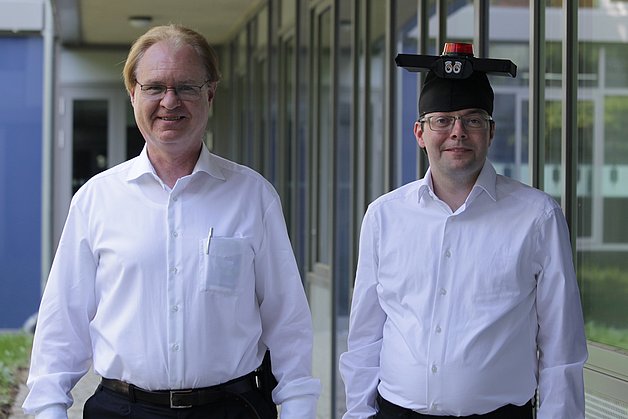
Press release,
Reliable and faster chip designs through invasive and parametric simulation methods
Dissertation on new methods for automation in integrated circuit design
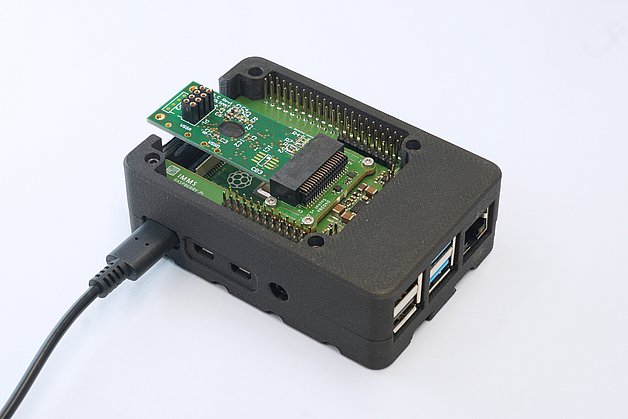
Event,
SMACD 2024
International Conference on Synthesis, Modeling, Analysis and Simulation Methods and Applications to Circuit Design (SMACD)

Event,
edaWorkshop 2024
edaWorkshop24 and the European Nanoelectronics Applications, Design & Technology Conference (ADTC)
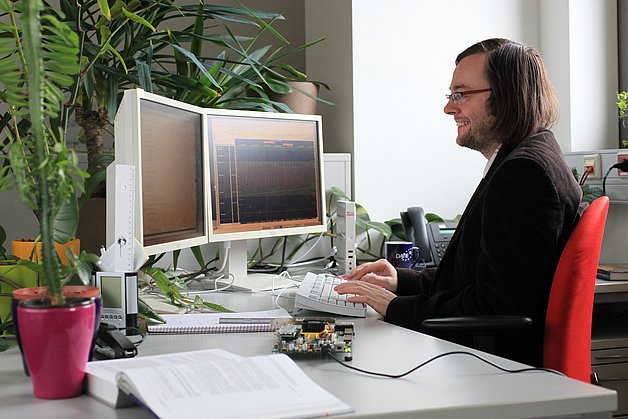
Event,
CiS Workshop 2023
Workshop Simulation & Design 2023 at CiS Forschungsinstitut für Mikrosensorik
Contact
Contact
Eric Schäfer, M. Sc.
Head of Microelectronics / Branch Office Erfurt
eric.schaefer(at)imms.de+49 (0) 361 663 25 35
Eric Schäfer and his team research Integrated sensor systems, especially CMOS-based biosensors, ULP sensor systems and AI-based design and test automation. The results are being incorporated into research on the lead applications Sensor systems for in-vitro diagnostics and RFID sensor technology. It will assist you with services for the development of Integrated circuits and with IC design methods.
Funding
The joint project VE-VIDES was funded by the Federal Ministry of Research, Technology and Space (BMFTR) under the reference 16ME0246.


